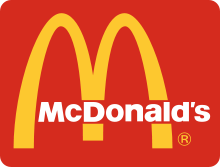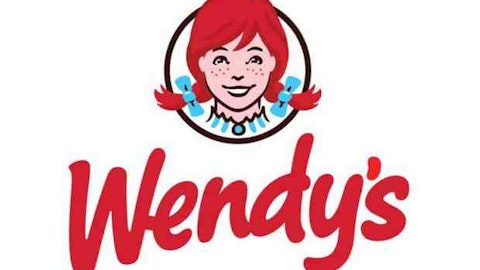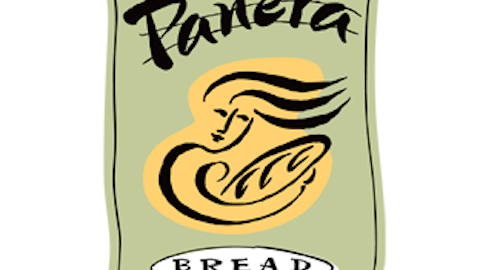When people dine out of the home, they have a few qualifications. The meal generally needs to be quick, it has to be tasty, and of course it must be affordable. Increasingly, people are becoming tired of the normal fast food fare. Companies like McDonald’s Corporation (NYSE:MCD) have seen this effect as their sales have staggered a bit recently. As an example, McDonald’s sales in the first quarter of 2013 were down 1% globally.
The McDonald’s quagmire
It almost seems as if McDonald’s Corporation (NYSE:MCD) is battling a zero-sum game. McDonald’s is fighting a much larger perception problem at this point. The company is dogged quite frequently as the symbol for bad health. According for the Center for Disease Control, the number of obese Americans is at 35.7%, and that “there was a dramatic increase in obesity in the United States from 1990 through 2010.”
Introducing egg whites and “premium” wraps is a way to try to avoid that perception, but even McDonald’s Corporation (NYSE:MCD)CEO Don Thompson has said that he doesn’t expect items like salads to ever make up a significant portion of revenue. McDonald’s was once considered an excellent investment, but with the new paradigm of “fast causal” restaurants its days as a value investment are likely over. There might not be much growth in fast food anymore.
Chipotle sparked something new
The one company that most epitomizes the fast casual movement would be Chipotle Mexican Grill, Inc. (NYSE:CMG). In many ways, it could be considered the anti-McDonald’s Corporation (NYSE:MCD). It does not offer drive-through. The food is fresh, not frozen, and you get to watch it being assembled right in front of you. There’s more transparency involved in the preparation process altogether. This translates into increased food quality, both real and perceived.
Chipotle Mexican Grill, Inc. (NYSE:CMG) is changing the way that people think about eating out. They have proven that you can get a quick meal on the go without compromising food quality and affordability. This is ultimately what has been creating a new restaurant segment such as fast casual. Revenues for Chipotle have been steadily increasing, but as an investment there are better options. Just because Chipotle gets all the headlines doesn’t mean it is the best stock out there in regard to growth in what is becoming a huge growth segment of the food service industry.
Panera Bread Co (NASDAQ:PNRA): Chipotle plus Starbucks?
Offering more of a cafe-life atmosphere, Panera Bread has much more room to grow. The company mixes the fast casual environment with Starbucks Corporation (NASDAQ:SBUX)-like quality, offering a place for people to have a caffeinated beverage and get some work done on their laptops and tablets. This is in contrast to Chipotle Mexican Grill, Inc. (NYSE:CMG), which is clearly in the business of getting people in and out of its locations. There’s nothing wrong with that, of course; the company is simply operating on a different business model than Panera.
Panera Bread Co (NASDAQ:PNRA) offers things like Wi-Fi and a much more diverse menu that fits a wider palate. It also do not have as much penetration as Chipotle does. If you live in an urban area, you can probably think of multiple Chipotle Mexican Grill, Inc. (NYSE:CMG) locations while Panera’s store footprint size means expansion has been slower. That’s good for the investor, though – slow, steady growth and a diverse set of customers.
An alternative to all of the rest
One company that has a proven formula and which is undervalued when compared to Panera Bread Co (NASDAQ:PNRA) would be Tim Hortons Inc. (USA) (NYSE:THI)‘s . A well-known brand in Canada, the company has been expanding south into the U.S. with some success. Tim Horton’s is known for its coffee and breakfast fare, and like Panera it offers a diverse set of menu options that caters to a wide array of people.
Unlike Panera Bread Co (NASDAQ:PNRA) and Chipotle Mexican Grill, Inc. (NYSE:CMG), however, Tim Horton’s embraces a drive-through strategy as well. Offering a fast food-like component to its business puts Tim Horton’s squarely in competition with everyone, including McDonald’s Corporation (NYSE:MCD). But the company’s focus on quality might make it a worthy competitor in a market that could be tired of endless burger chains. Although revenue and profits were slightly down for the company in the past quarter, Tim Horton’s looks like a nice long-term stock.
Best investments
It’s smart to bet against McDonald’s Corporation (NYSE:MCD) growing much more. The company is dealing with too much competition in a new category that only a few years ago did not exist. For the most part, investors thinking about Chipotle Mexican Grill, Inc. (NYSE:CMG) should think twice; that stock has already gone through a major growth phase, although the company is testing out a new category in Asian fast casual with its Shophouse Asian kitchens.
It seems like Panera Bread Co (NASDAQ:PNRA) would be a better investment. If it can offer a superb customer experience, look for Panera to be able to cater to both the fast casual and Starbucks crowd. People continue to seek out places to hang out at outside of the home, and Panera could become a welcoming presence in places where every coffee shop is overloaded with people.

Speaking of coffee, Tim Horton’s has only 808 locations in the United States as compared to 3,453 in Canada. The company fits nicely in between fast food and fast casual, offering diners a different option. Tim Horton’s is able to straddle categories, which might make it more capable of operating more profitably in rough economic times. Overall, put your money into fast casual as the segment’s trajectory continues growing upward with great potential.
Daniel Cawrey has no position in any stocks mentioned. The Motley Fool recommends Chipotle Mexican Grill, McDonald’s, and Panera Bread. The Motley Fool owns shares of Chipotle Mexican Grill, McDonald’s, and Panera Bread.
The article Cashing In on Fast Casual originally appeared on Fool.com.
Copyright © 1995 – 2013 The Motley Fool, LLC. All rights reserved. The Motley Fool has a disclosure policy.






